Subscriptions page consistency across services
When your customers are managing their subscriptions in Cloudmore, they would expect a consistent experience when managing different services.
It shouldn’t matter what type of service they’re looking at - weather it be Microsoft 365 CSP Direct, Software Subscriptions or any kind of custom service you’ve published for them.
This is now a reality - the data set is now exactly the same for any type of subscription. More specifically, the data set is:
-
Subscription name - the user-assigned name for that subscription.
-
Product Name & Item Code - the human-readable name of the product and unique identifier in the form of SKU code.
-
Quantity & Licenses - the number of total licenses purchased and the number of unassigned licenses from that set.
-
Total Sales Price - the total amount that will be paid for that subscription, including the currency and payment frequency. Additionally, the unit sales price and the quantity for which the charge will occur. Same format as in the Renewals Report.
-
Start Date & Commitment - the most recent renewal date of the subscription. In case it’s a brand new subscription, it will show the initial creation date. Additionally, it will show the term duration (commitment term) at which it will periodically renew.
-
Next Billing - the upcoming date at which new billing for this subscription will be published. Additionally, it will show where the billing date originates from (vendor or otherwise).
-
Renewal or End Date - the next upcoming date when the subscription will either renew or end. It will also show if the subscription will end, renew with any changes or without changes.


Additionally, all this information (+ Organization Name) is also available on the Broker level Subscriptions page.
This allows you to review your customers subscriptions without having to access each of their individual Organization level.
To highlight, the Subscriptions page somewhat functions as a renewal report as well, showing weather the next upcoming renewal will include any subscription changes.
The subscriptions export options for all services on both levels are also unified and more clear.
Organization page filtering improvements
The way you identify and search for your customers might not be by their name at all. Especially, if you got a lot of them.
It might be that you search for them by their customer number, which you have in your CRM or ERP system instead.
The customer number field has been available for your Organizations for a long time already. But now you can also conveniently search by that identifier.
Alternatively, you can also search by their primary domain name, if this is how you distinguish your customers internally.
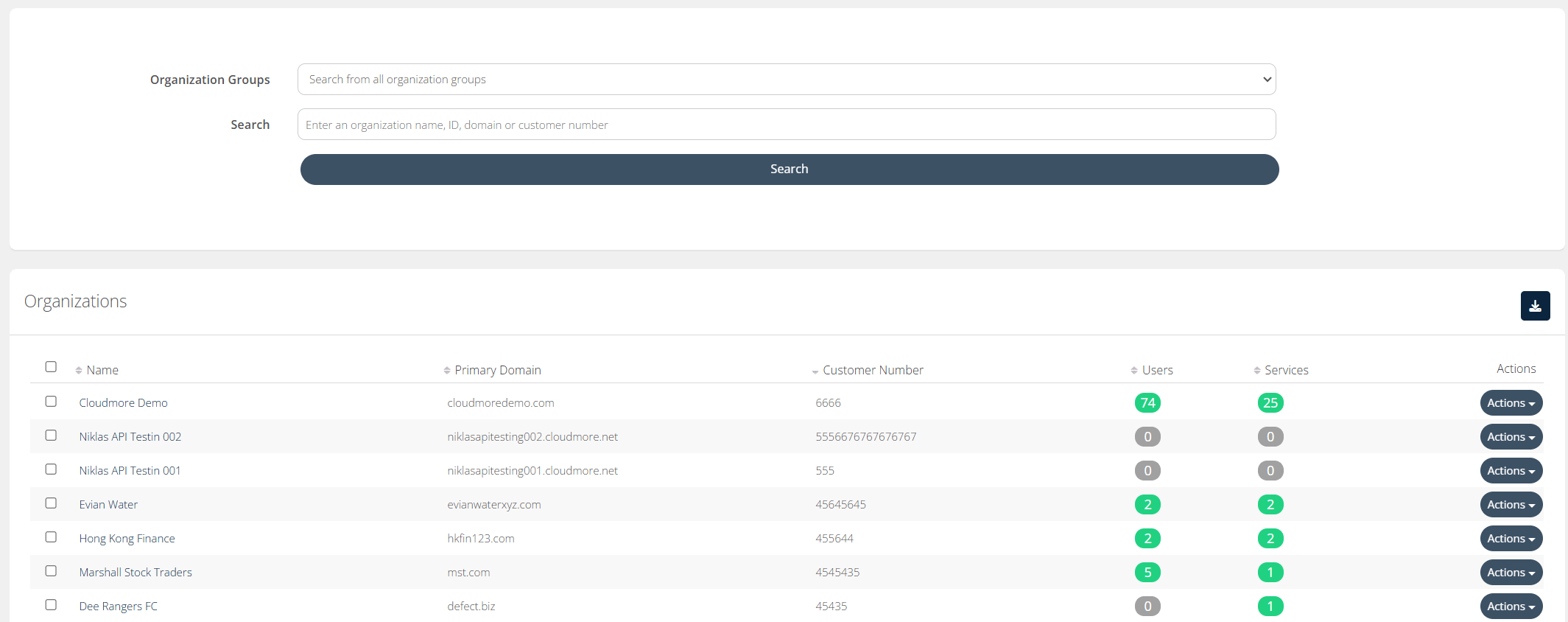
The results also show the Primary Domain and the Customer Number for confirmation and convenience, in case there are multiple results.
Additionally, the export options are now more clear and the export file name is more descriptive.
Organization Primary Domain switching
Speaking of Organization management and their Primary Domains, there is an additional improvement on that front.
In some cases, your customers might have changed their primary domain. We’ve got you covered.
Customers can now change to a new primary domain in their “Domains” management.
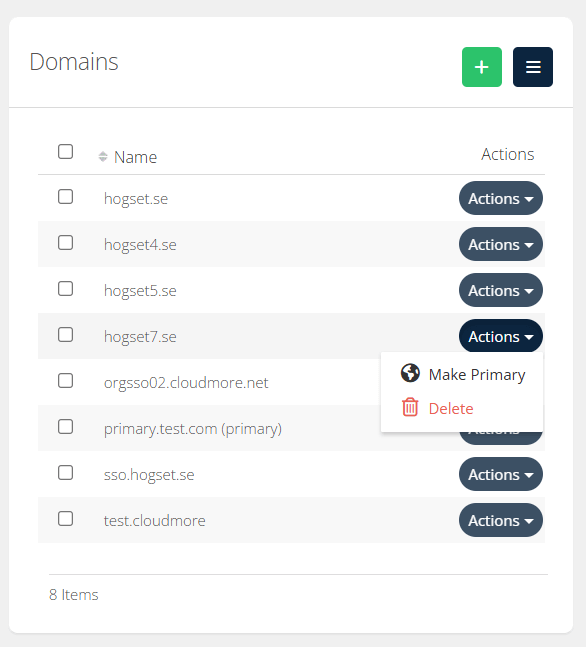
When any domain is made “Primary”, all other domains lose the “Primary” status. This ensures that there will always be exactly one primary domain.
This allows for better flexibility for your customers who are going through changes.
New General Billing Report filters improvement for Run Instantly
If you haven’t tried it yet, you should by now. The new pre-generated General Billing Report is a lot faster than the old General Billing Report.
Additionally, the new Billing Report receives a lot more attention in terms of improvements for functionality and design.
We have started with improving the filters for Run Instantly, to make it more convenient to choose the services and preferred formats.
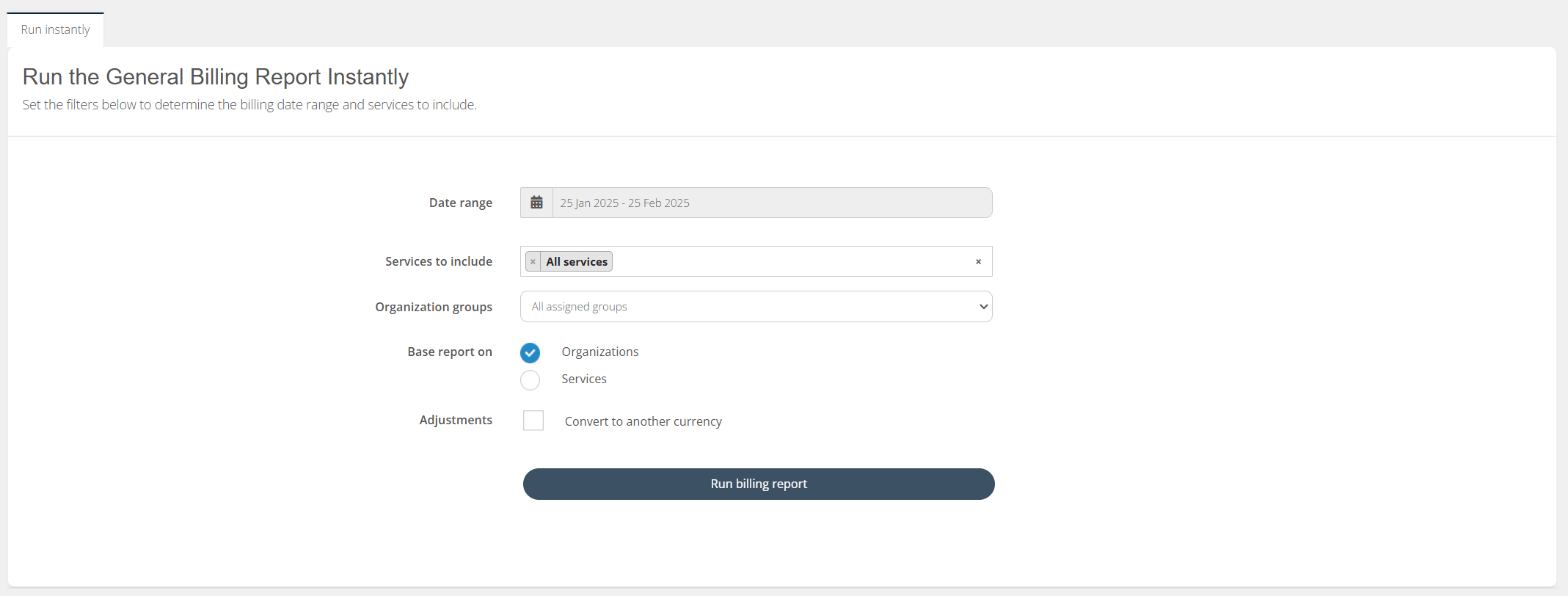
The “tabs” style approach and the multi-select dropdown for services are UI patterns that you should already be familiar with.
We aim to unify the platform in these ways, to create a more consistent and convenient experience for you and your customers.
Viewing Perpetual software
To further strengthen brokers abilities to manage the full scope of CSP within the Cloudmore Platform we are introducing the possibility to display Perpetual software.
As a broker you will be able to view your customers existing Perpetual software on organization level.
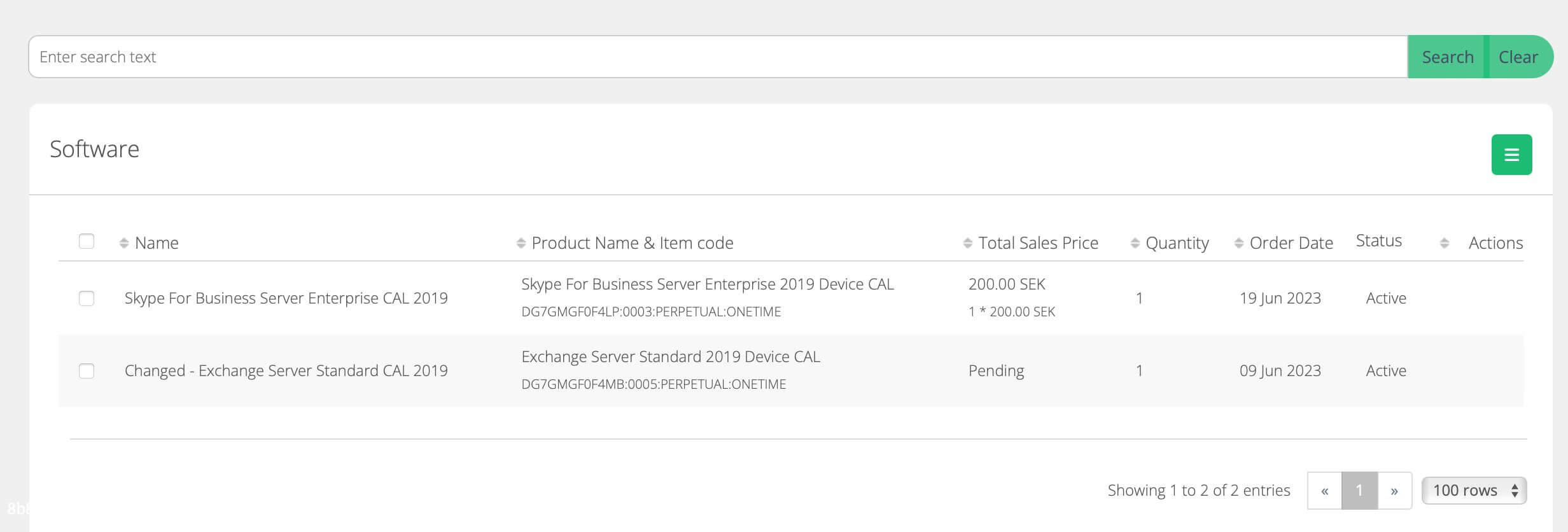
We are continuing to add functionality to further support actions, purchases and more on Perpetual software.
Updates for purchasing Azure reservations
We have reworked the way we allow users to purchase Azure reservations. By utilizing the NCE price lists for reservations we will now make it easier to find the product you are interested in more quickly.
You are now able to specify Commitment term and billing frequency when you search for available reserved instances.

On top of this we will also include an exchange rate calculation making costs more transparent.
The NCE price lists for reservations are published in USD and pricing for non-USD brokers are calculated based on exchange rates published by Microsoft. We have made it transparent by providing the price and exchange rate in the purchase flow.
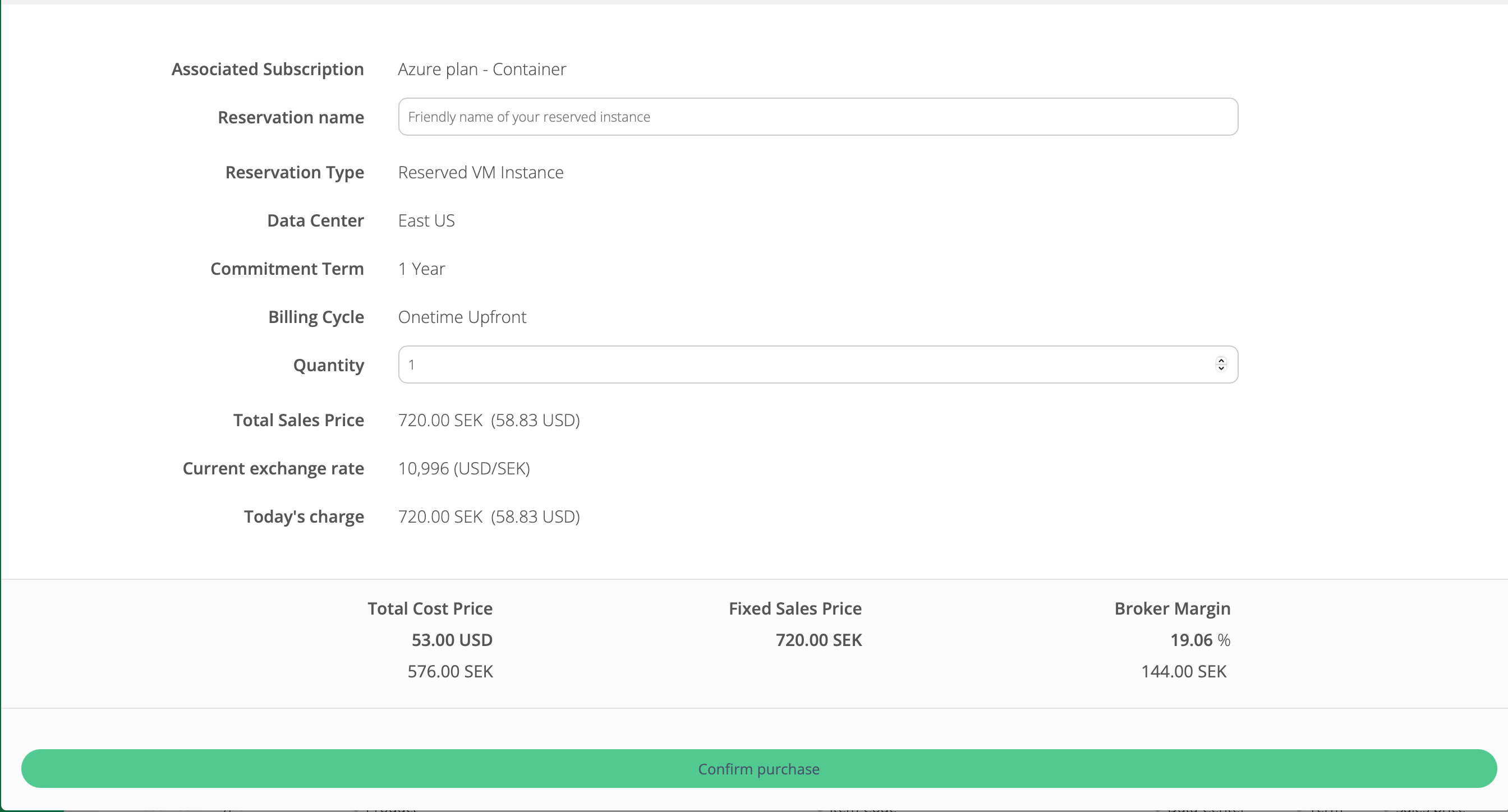
Azure unbilled usage line items
For any broker looking to get detailed Azure usage information we have now added three new endpoints to support changes from Microsoft.
The new endpoints introduced are listed below.
Request azure onetime unbilled usage invoice report:
POST /api/resellers/{resellerId}/billing/azureonetimeusage/report/unbilled/period/{period}/export
Request azure onetime unbilled usage invoice report:
GET /api/resellers/{resellerId}/billing/azureonetimeusage/report/unbilled/period/{period}/operation/{operationId}/status
Returns azure onetime unbilled usage period report:
GET /api/resellers/{resellerId}/billing/azureonetimeusage/report/unbilled/period/{period}/operation/{operationId}/result
These endpoints will be useful to brokers who are looking to dig deeper in to the details of their organizations Azure usage and are replacing previous endpoints in our API.
The new endpoint providing results will support pagination without continuation tokens to allow for a more efficient and reliable point of integration.
For more information on the endpoint, please have a look at the Swagger documentation.
Share this
You May Also Like
These Related Stories
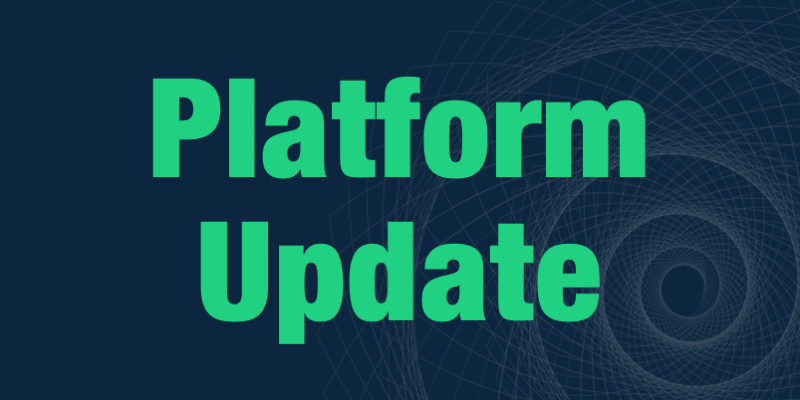
Platform Update | February 2024

Platform Update | October 2024


